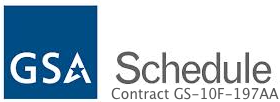Local vs Global: Dissecting Market Share Dynamics in the Online Gambling Industry
Introduction
In the fast-evolving realm of online gambling and casinos, understanding how local market shares compare against global competitors is critical for industry analysts. The UK gambling sector, known for its stringent regulations and mature market, furnishes a unique vantage point for dissecting competitive dynamics. Conducting a comparative analysis of local gambling market share in relation to global players not only reveals structural strengths and weaknesses but also uncovers potential strategic opportunities for operators and stakeholders within the industry.
Market Share Landscape: Local vs Global Competitors
The online gambling industry is characterised by rapid innovation, regulatory flux, and shifting consumer preferences. UK operators, bound by the UK Gambling Commission’s robust framework, have successfully established a substantial market share domestically. However, they increasingly face competition from global entrants, particularly those leveraging scalable platforms and broader geographical reach. These international operators benefit from diverse regulatory environments and significant capital investments, challenging local operators’ market dominance.
Understanding market share involves analysing not only the percentage of revenue or player base controlled but also penetration of product verticals, such as sports betting, online casinos, and live dealer offerings. UK-focused platforms traditionally excel in sports betting, given the local affinity for football and horse racing, but global competitors often possess cutting-edge live casino technology and extensive jackpot networks.
Regulatory Influences on Market Share
The stringent regulatory regime in the UK ensures player protection and fair play, which appeals to a conscientious segment of UK consumers. However, this regulatory burden can impede rapid market innovation and sometimes inflate operational costs. Conversely, some global players, particularly those operating in more permissive or emerging markets, might introduce novel products at a faster pace or benefit from favourable tax treatments, allowing for competitive pricing strategies that can undercut local offerings.
This regulatory dichotomy creates a dynamic tension where local operators must innovate within a tightly regulated framework, while global competitors may possess greater latitude. Industry analysts must factor in these regulatory contexts when comparing market shares, recognising that compliance and consumer trust are often traded off against agility and market penetration.
Technological Innovation and Consumer Engagement
Technological prowess remains a pivotal factor defining competitive positioning. Many global gambling operators invest heavily in advanced AI-driven personalisation, immersive graphics, and augmented reality features that enhance user engagement. Meanwhile, UK-based operators often leverage rich data analytics to refine customer acquisition and retention in compliance with GDPR and other data protection norms.
Moreover, the rise of mobile gambling has flattened competitive hierarchies to an extent, enabling local operators to maintain relevance through agile app development and streamlined user interfaces. Nevertheless, global platforms may hold an advantage in scale and diversity of offerings, attracting a broader international audience beyond UK borders.
Brand Loyalty and Market Penetration
Brand strength and consumer loyalty remain critical for local operators striving to defend market share against international entrants. UK consumers tend to demonstrate significant trust in well-established, locally licensed brands, which benefits operators adhering to rigorous regulatory standards. This trust acts as a barrier to entry for some global competitors, who must invest extensively in brand awareness and reputation-building to capture market share.
Furthermore, partnerships with local sports leagues, sponsorships, and community engagement initiatives can solidify a local operator’s standing. Global competitors, while possessing deeper pockets, often struggle to replicate these nuanced, community-rooted relationships, which remain a unique asset for UK operators.
Conclusion
The comparative analysis of local versus global market share in the online gambling industry reveals a complex interplay of regulation, technology, consumer behaviour, and brand equity. UK operators enjoy distinct advantages stemming from strong regulatory compliance and local brand trust, yet must continually innovate to contend with technologically advanced and financially robust global competitors.
For industry analysts, a nuanced understanding of these factors is essential. Recommendations include close monitoring of regulatory developments, investing in technology that balances innovation with compliance, and fostering deep customer engagement strategies that leverage local cultural affinities.
As the UK gambling market continues to evolve amidst global competition, platforms such as Richville exemplify the emerging trend of sophisticated, locally minded operators carving out significant market share through expertise and tailored offerings. Navigating this landscape will require a strategic blend of agility, regulatory insight, and consumer-centric innovation.
